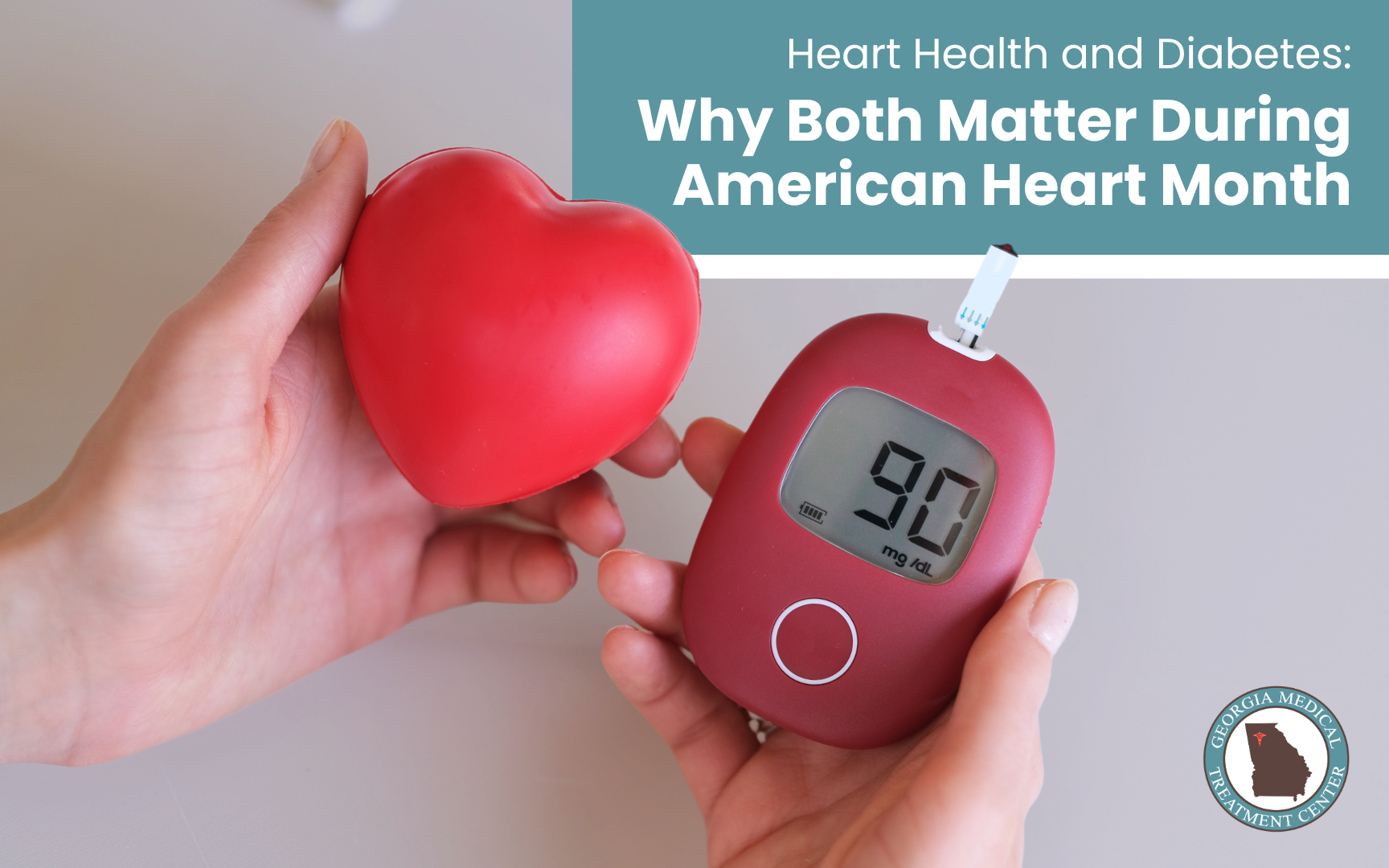When it comes to managing diabetes, most people focus on monitoring blood sugar levels. While this is a huge part of diabetes care, it’s also important to take care of your heart health. In this blog, we’ll take a closer look at the link between diabetes and heart disease. We’ll also explore treatment methods and review how our diabetes doctor in Canton can help you.
The Link Between Diabetes and Heart Disease: What You Need to Know
You’ve probably heard that heart disease is the leading cause of death in the United States. But, did you know that diabetes can greatly increase your risk? Here are some ways that diabetes contributes to heart disease:
- Higher blood pressure: People with diabetes are more likely to develop hypertension, which is a major risk factor for heart disease.
- Blood vessel damage: Elevated glucose levels can harm the lining of blood vessels and make them more susceptible to blockages.
- Increased plaque: Diabetes is linked to higher levels of LDL (bad) cholesterol, which causes plaque formation in the arteries.
- Obesity risk: Insulin resistance may contribute to obesity, which in turn increases heart disease risk.
Key Tips for Managing Diabetes and Protecting Your Heart
Are you worried about your diabetes impacting your heart health? Here are some steps you can take to help protect your heart:
- Blood sugar management: Managing your blood sugar levels helps reduce blood vessel damage.
- Lifestyle changes: Healthy lifestyle habits, such as proper diet and exercise, contribute to a healthier heart.
- Consistent check-ups: Regularly monitoring your heart and diabetes health helps prevent problems from arising.
Let’s examine each of these factors in more detail.
How Blood Sugar Control Helps Prevent Heart Disease
Monitoring your blood sugar isn’t just important for diabetes care; it’s also essential for preventing heart disease. More specifically, it assists with the following:
- Prevents blood vessel damage: As mentioned above, high blood sugar levels can harm the delicate lining of blood vessels. Stable levels, meanwhile, help preserve blood vessels and also maintain healthy blood pressure levels.
- Reduces artery blockages: By keeping glucose levels stable, you can limit the formation of sticky plaque deposits that otherwise narrow the arteries.
- Decreases unhealthy cholesterol levels: Stable blood sugar reduces harmful LDL cholesterol and triglycerides, while improving HDL (good) cholesterol levels.
- Decreases inflammation: High glucose levels trigger chronic inflammation, which negatively impacts heart health. Balanced blood sugar, on the other hand, prevents this inflammatory response.
Lifestyle Changes to Protect Your Heart During American Heart Month
Implementing simple lifestyle changes can go a long way in preventing heart disease. Here are some healthy habits that contribute to a stronger heart:
- Eat a balanced diet: Aim for a balanced diet that includes whole grains, lean proteins, healthy fats and non-starchy vegetables. Avoid unhealthy products, such as baked goods, processed items and alcohol.
- Exercise regularly: The Centers for Disease Control and Prevention (CDC) recommend getting at least 150 minutes of moderate-intensity physical activity a week.
- Manage stress: Did you know that stress can increase blood sugar? Things like meditation, yoga and breathing exercises help lower stress levels.
- Get enough sleep: Proper sleep helps regulate blood sugar and insulin sensitivity. Aim for at least seven hours a night.
The Importance of Regular Check-Ups for Heart and Diabetes Health
Make sure you don’t neglect your medical appointments. Regular check-ups offer the following benefits:
- Early detection of complications: Routine screenings help identify heart disease risk factors such as high blood pressure, high cholesterol and artery damage.
- Medication adjustments: Through regular check-ins, healthcare providers can evaluate how well your medications are working and make any necessary changes.
- Lifestyle guidance: Check-ups give healthcare providers an opportunity to assess your health and provide personalized recommendations for lifestyle changes.
When to Seek Medical Help: Signs Your Heart and Diabetes May Need Attention
Are you unsure whether you need to seek medical attention? Here are some signs to look for:
- Heart-related issues (such as chest pain, shortness of breath or an irregular heartbeat)
- Diabetes-related issues (such as high blood sugar readings, slow-healing wounds or vision problems)
- General health issues (such as dizziness, fatigue or fainting)
When it comes to treating health issues, it’s best to act sooner rather than later. By evaluating your health early, you can stop problems from escalating and even prevent heart disease altogether.
Comprehensive Care for Diabetes and Heart Health at Georgia Medical Treatment Center
There’s no doubt that diabetes and heart health go hand in hand. Through proper diabetes management, you can improve your condition and also take care of your heart in the process. At Georgia Medical Treatment Center, we offer comprehensive care geared toward holistic wellness. You can trust us to develop a plan that treats diabetes, fortifies your heart and boosts your long-term health. Schedule your consultation today!




0 Comments